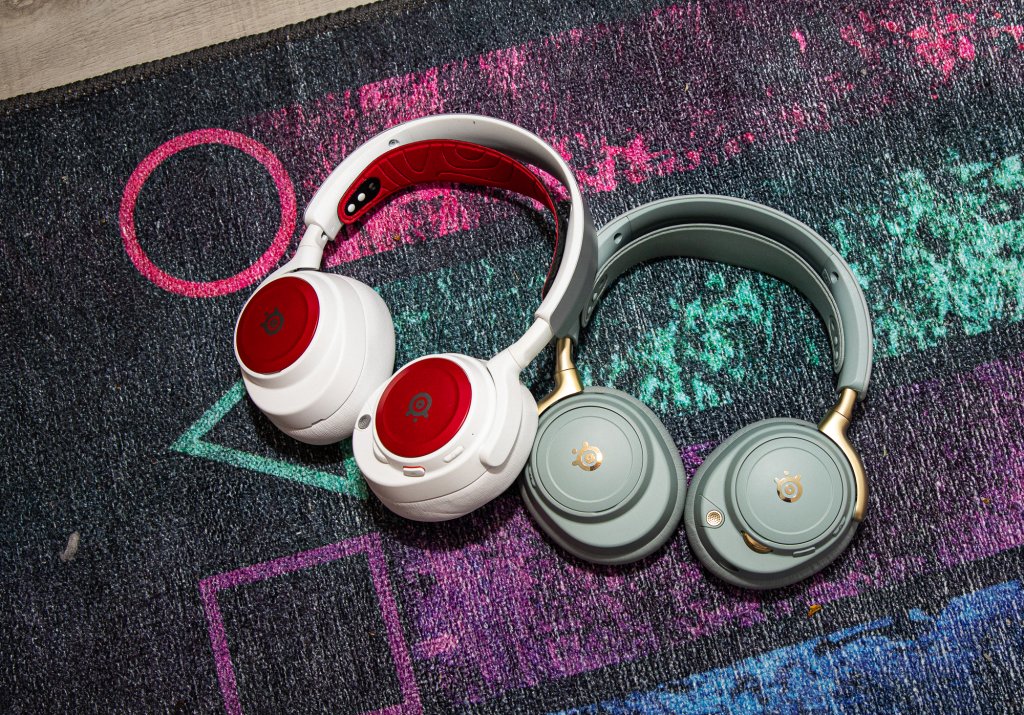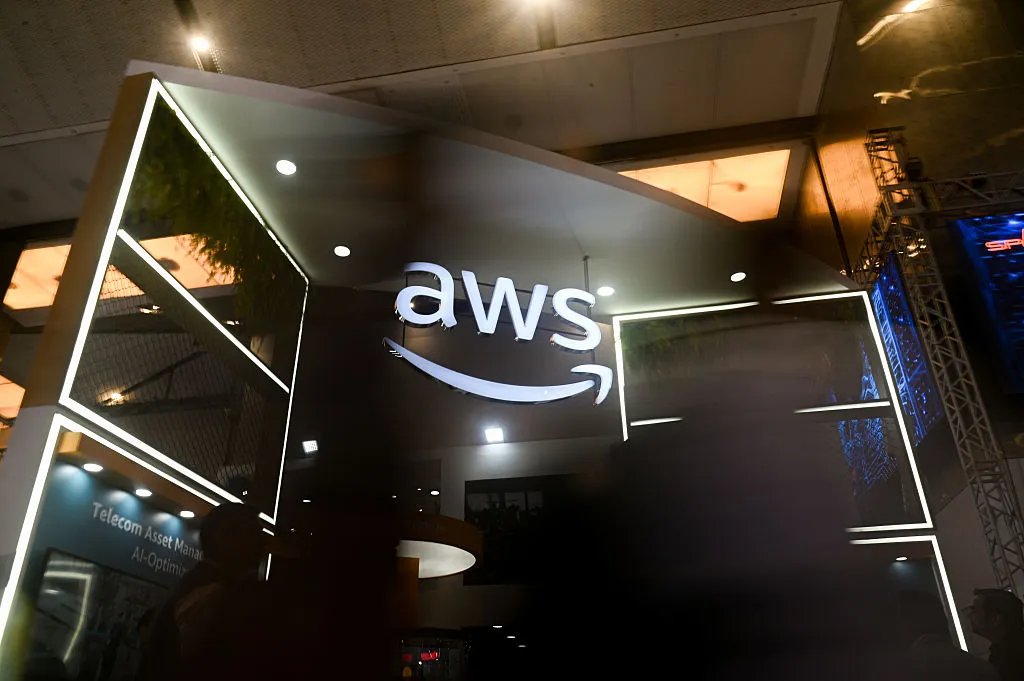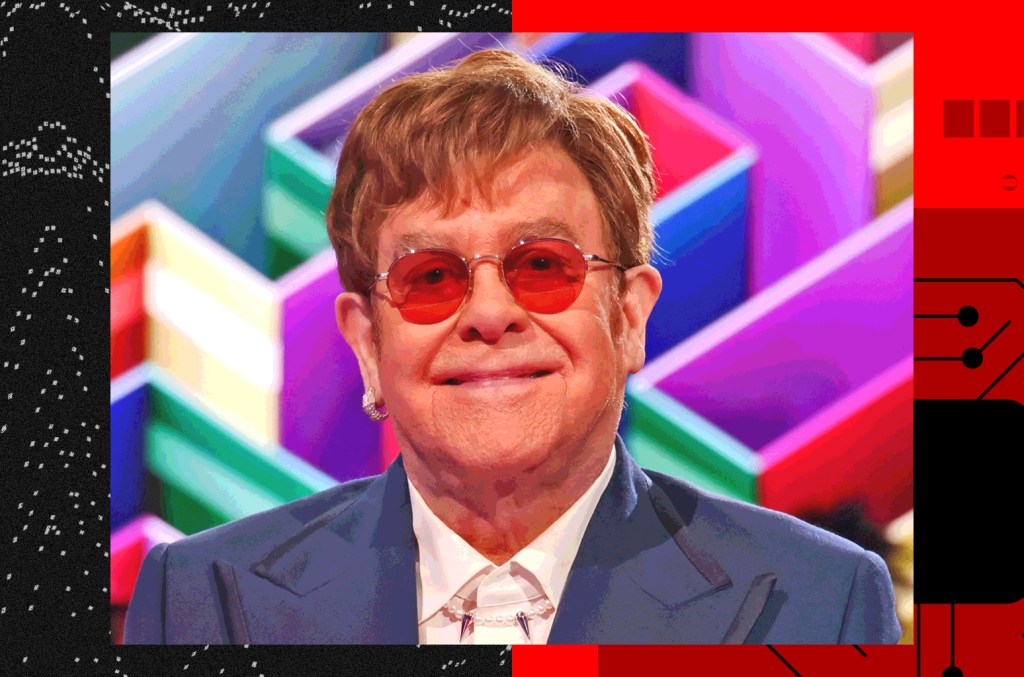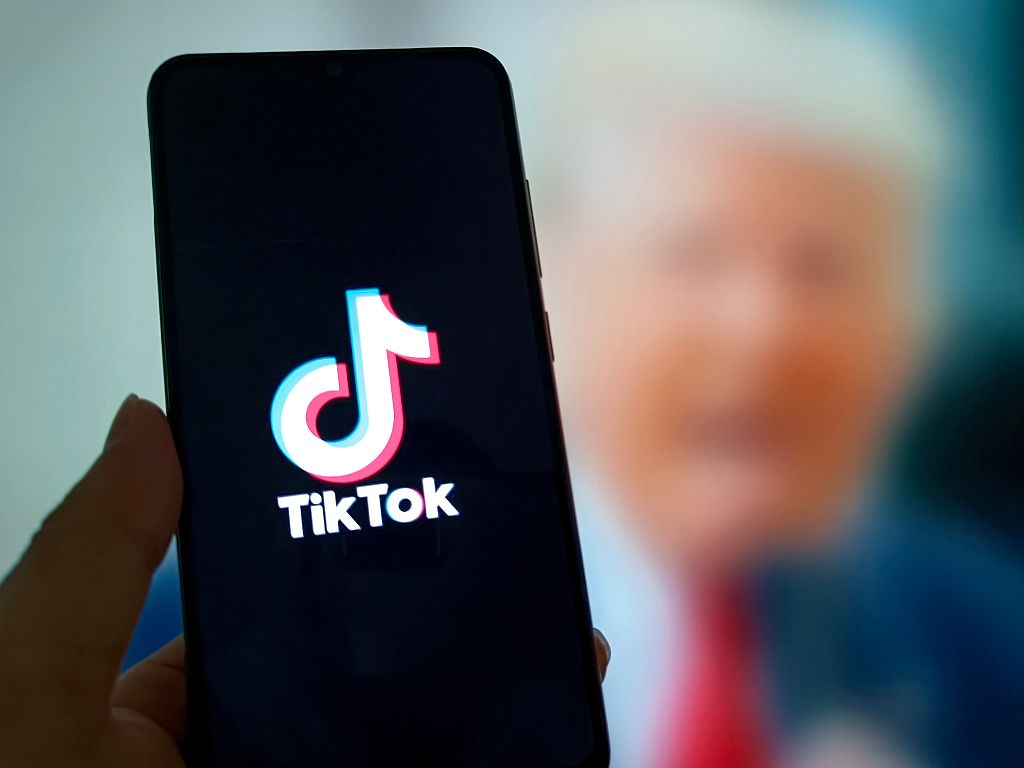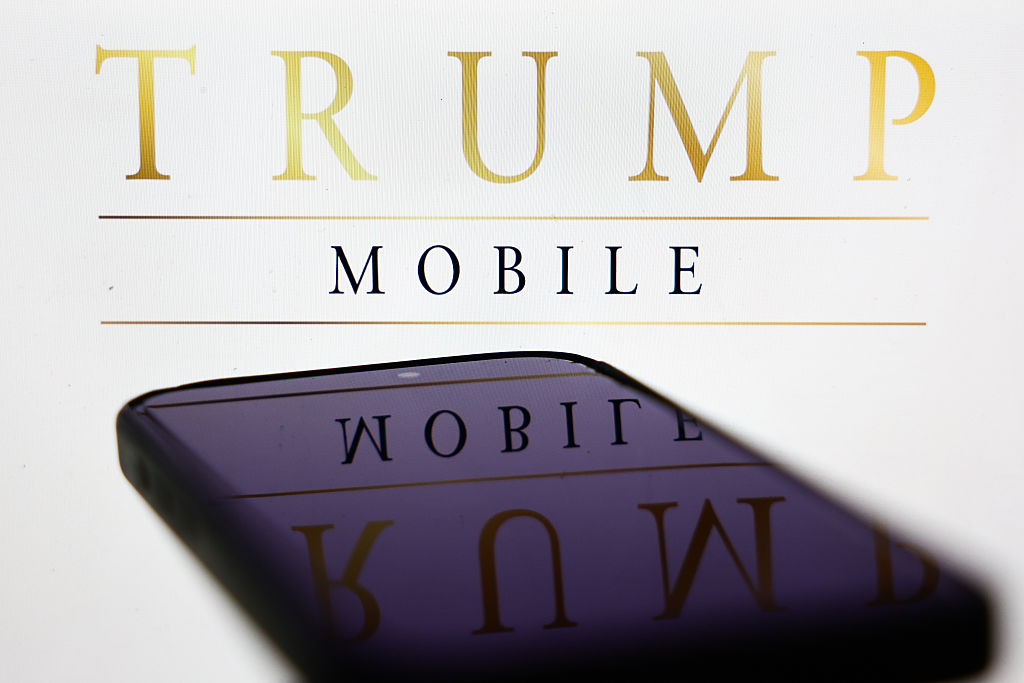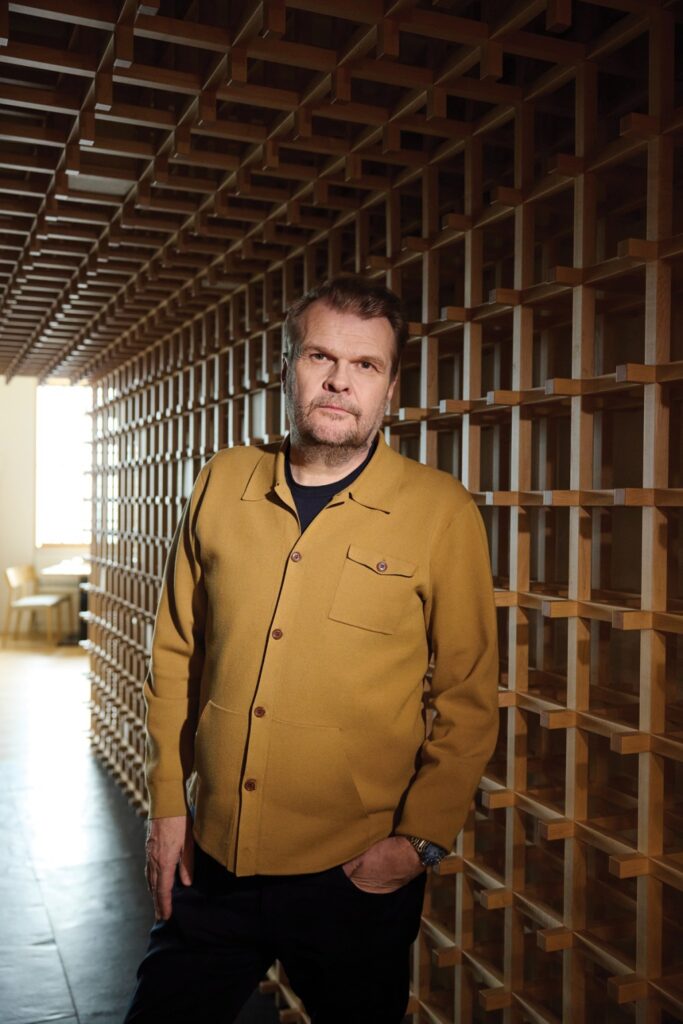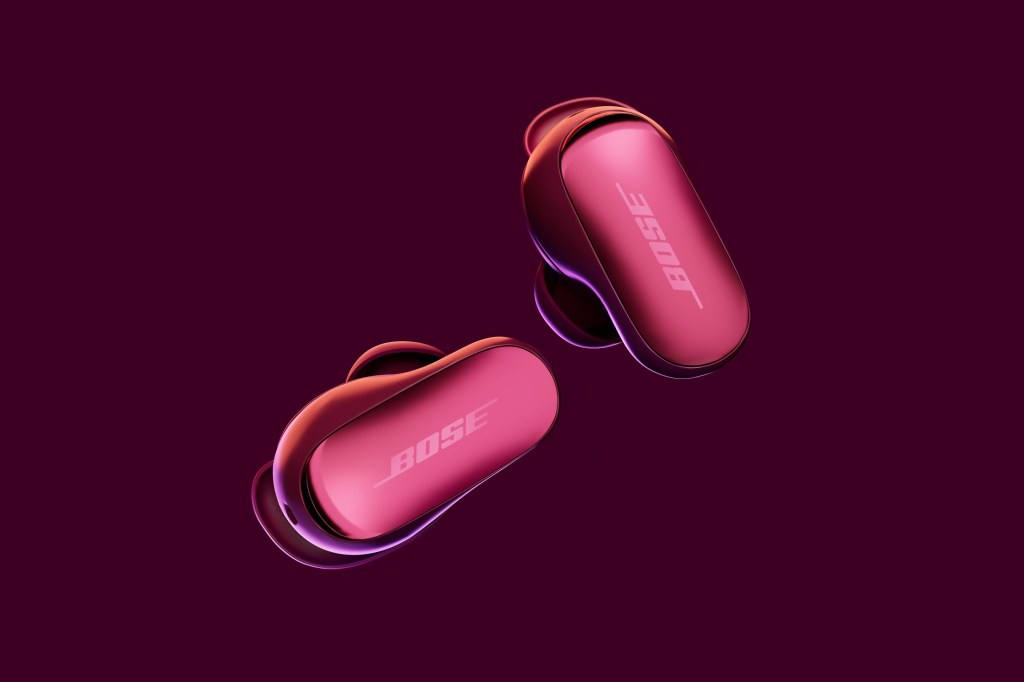tech
Page: 7
Bernards Smalls / @BeanzGotGamez / SteelSeries Arctis Nova Elite
$599 for a pair of gaming headphones is an astronomical ask, especially in Donald Trump’s economy. But if you got the coins, are serious about your video games, and how you immerse yourself in the world during your gaming sessions, then you definitely need the SteelSeries Arctis Nova Elite headset.
I’m not a serious audiophile, but I do appreciate a good gaming headset, and no one right now is making better headsets than SteelSeries. I’ve been a fan of the brand since I got my hands on the Arctis Nova Pro; it’s been my go-to head ever since, but that all changed once I got my hands on the Arctis Nova Elite.
With the arrival of the $599 Nova Elite headset, SteelSeries introduces a new category of luxury gaming headsets that could change the game. SteelSeries is hoping that the allure of the headset’s premium design, introduction of hi-res wireless audio, carbon fiber speaker drivers, a metal frame, and the ability to stream audio simultaneously from your PC, Xbox, PS5, and smartphone will convince you to swipe your card for the gaming headset that costs as much as a gaming console.
Based on my time with the headset, I believe they have accomplished that goal.
Premium Comfort & Design
Bernards Smalls / @BeanzGotGamez
While the Arctis Nova Pro ($290.99) and Arctis Nova Elite headsets share some similarities, the latter definitely sets itself apart from its predecessor in a number of ways.
The Nova Elite ditches the plastic, now featuring a metal frame and control wheel, and a fantastic sage-and-gold finish that helps the headset pull off a $599 look.
Bernards Smalls / @BeanzGotGamez
The memory foam cups on the Nova Pro were already comfy. Still, somehow SteelSeries made them even more comfortable on the Nova Elite, allowing me to remain cool and comfortable during extended gaming sessions.
I have pretty large ears, and wearing headsets can become cumbersome after a while, so that’s why I’m a buds person. But the Arctis Nova Pro fit perfectly over my ears, and I never felt the need to take them off to give my head and ears a break.
Bernards Smalls / @BeanzGotGamez
The fit on the Nova Elite is also improved thanks to SteelSeries’s use of aluminum and stainless steel, which give the headset a sturdier feel.
First Gaming Headset To Offer Hi-Res Wireless Audio
Bernards Smalls / @BeanzGotGamez
What really puts the Arctis Nova Elite headset in a class all by itself is that it’s the first gaming headset to offer hi-res wireless audio, allowing the wearer to stream 96kHz/24-bit audio over 2.4GHz via the GameHub DAC or the headset’s impressive Bluetooth with LC3+.
Bernards Smalls / @BeanzGotGamez
Ahead of my review, SteelSeries told me that Hi-Res audio is something I can only experience on the latest Google smartphone, the Pixel 10, or on PC, with consoles like the PS5 and Xbox Series X capped at 48k/16bit.
Still, the sound quality while playing games with rich audio, like Alien: Rogue Incursion, Silent Hill, or Call of Duty, was vastly improved while wearing the Nova Elite headset.
Through the Arctis smartphone companion app or Sonar on the PC, you can quickly change the sound profiles with any of the preloaded EQ Presets. For example, there is a preset designed explicitly for Armored Core IV: Fires of Rubicon, and one already loaded for Battlefield 6.
Bernards Smalls / @BeanzGotGamez
I did most of my tweaking through the Arctis app because dealing with Windows and Sonar wasn’t seamless for me, but I’ll stop short of saying it was a headache.
Omniplay Is Something I Didn’t Know I Needed
Bernards Smalls / @BeanzGotGamez
Another game-changing feature that the Nova Elite boasts that I didn’t know I needed until I experienced it is Ominplay.
What is Omniplay, you ask? Well, it allows the wearer to connect to four audio sources simultaneously. So I can be connected to my smartphone via Bluetooth, while still being connected to my PS5 and Xbox Series X via USB-C at the same time.
Unlike the previous GameHub DAC model, the one that comes with the Nova Elite features three line-in inputs instead of just two.
Omniplay lets you mix audio from four sources, so you can be in a Discord chat on your phone or PC and mix in audio from whatever console you’re playing on.
Final Verdict
Bernards Smalls / @BeanzGotGamez
I’m not going to hop on here and tell you to run out and buy a pair of $599 headphones, but I will say these bad boys are worth every single penny if you do intend to swipe the card on them.
SteelSeries has cemented its position in the luxury gaming headset space, and we won’t be surprised if other companies follow suit.
The Arctis Nova Elite checks all the boxes and then some, offering a sturdy headset built from premium materials that provide comfort, superior ANC (active noise cancellation), fully customizable and superb sound, hi-res wireless audio, and the ability to sync with up to 4 devices at once.
They can also serve as your everyday headset because they make the transition from your gaming station to the streets easy, thanks to they unique design.
SteelSeries has delivered, dare I say, the best gaming headset on the market right now. Whether you can afford a pair is another question.
If you can’t you can always scoop up a pair of Arctis Nova 7 Wireless Gen 2 which are only $199 or the very much still relevant Arctis Nova Pro which are currently on sale.
Source: Bernards Smalls / @BeanzGotGamez / SteelSeries Arctis Nova Elite
Source: Bernards Smalls / @BeanzGotGamez / SteelSeries Arctis Nova Elite
Source: Bernards Smalls / @BeanzGotGamez / SteelSeries Arctis Nova Elite
Source: Bernards Smalls / @BeanzGotGamez / SteelSeries Arctis Nova Elite
Source: Bernards Smalls / @BeanzGotGamez / SteelSeries Arctis Nova Elite
Source: Bernards Smalls / @BeanzGotGamez / SteelSeries Arctis Nova Elite
Source: Bernards Smalls / @BeanzGotGamez / SteelSeries Arctis Nova Elite
Source: Bernards Smalls / @BeanzGotGamez / SteelSeries Arctis Nova Elite
Source: Bernards Smalls / @BeanzGotGamez / SteelSeries Arctis Nova Elite
Source: Bernards Smalls / @BeanzGotGamez / SteelSeries Arctis Nova Elite
Source: Bernards Smalls / @BeanzGotGamez / SteelSeries Arctis Nova Elite
NurPhoto / Amazon Web Service
The world found out just how reliant the internet is on Amazon Web Services, and it’s honestly quite worrisome.
While you were in your second dream, the internet suddenly crashed after AWS (Amazon Web Services), a cloud service many companies use, went down early this morning.
According to Tom’s Guide, the AWS outage began around 12:11am PDT (3:11am ET, 8:11am BST), and it showed immediately how much of a bad idea it is for one company to be the “backbone” of the internet, as hundreds of websites suddenly went down.
Popular apps like Snapchat, Venmo, Ring, and Amazon, as well as services like Alexa, reported outages. Even the gaming world was affected by Fortnite, and Pokémon GO also saw massive outages.
Apple, which is also a prominent user of AWS, and according to AppleInsider, spends a whopping $30 million a month, saw all of its services, like Apple Pay, Apple Music, and AppleTV+, also suffer outages.
Tom’s Guide reports that despite AWS rolling out fixes, it has to play “whack-a-mole” as more websites continue to suffer outages as Amazon struggles to resolve the issue.
Social media began sounding off on just how problematic having AWS run everything is.
“The AWS outage should be evidence that running half the internet on a single company’s servers is a terrible idea but i fear nothing will change,” one person wrote on Bluesky.
Another Bluesky user wrote, “The AWS outage today is a good reminder that there is no “cloud”, there’s just somebody else’s computer.”
No lies detected here.
You can see more reactions below.
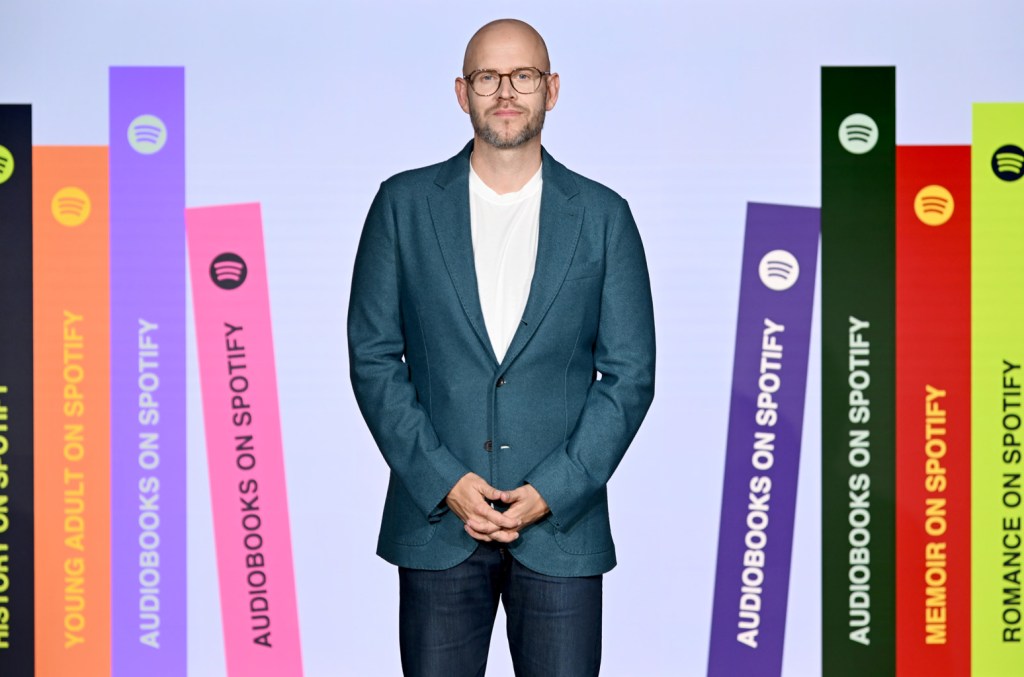
Given the enormous stakes at play, when business leaders talk about AI, people listen.
In May, Dario Amodei, CEO of AI firm Anthropic — who stands to personally benefit from companies’ widespread adoption of his technology — gained widespread attention after he predicted that AI will wipe out half of all entry-level jobs within five years. And in music, Sony Music CEO Rob Stringer, in an annual presentation to investors, said the company is “going to do deals for new music AI products this year” and that it has “actively engaged with more than 800 companies” on various AI-related initiatives.
Perhaps most notable, at least on the music front, are the comments made about AI in various interviews given by Spotify CEO Daniel Ek in recent years. In them, he’s provided insights into how Spotify, the most valuable and important music platform in the world, approaches the technology. Ek’s comments carry weight: While generative AI platforms such as Suno and Udio have stirred the greatest amount of fear over AI’s ability to undermine human creativity, the largest music platforms will play a huge role in how both creators and listeners engage with it.
Understanding Spotify’s approach to AI doesn’t always require reading tea leaves. Some of its products that use AI are out in the open. For example, in 2023, the company launched two major products that utilize the technology: a personalized AI-powered DJ and a voice translation tool for podcasters that can translate recordings into other languages. Still, given that the company’s attitudes and approaches to AI will affect Spotify’s 678 million monthly users and millions of creators, it’s worth examining Ek’s statements to see how Spotify intends to incorporate AI, embrace opportunities and address concerns. To that end, this author examined 10 podcast interviews, numerous online articles and a 2024 open letter Ek penned with Meta CEO Mark Zuckerberg to get a better sense of how he views the technology. The one aspect about AI that Ek has talked about most often is its ability to help Spotify deliver to listeners the right audio — whether it’s music, a podcast or an audiobook — at a particular moment. He has described a mismatch between supply and demand, and how using new innovations can help better connect listeners and creators. Right now, Spotify users can search and find what they want 30% to 40% of the time, Ek told the New York Post in May, adding that he believes AI can improve that number. “So, we still have some ways to go before we’re at that point where we can just serve you that magical thing that you didn’t even know that you liked better than you can do yourself,” he explained. Most germane to people reading this article, the interviews show that Ek has consistently voiced a respect for creators and a belief that AI should enhance creativity, not replace it. That may not reassure songwriters who are receiving fewer royalties after Spotify adopted a lower royalty rate afforded to bundles in the U.S. Ek’s stated respect for artists also contrasts with the criticism Spotify has attracted — as detailed in the book Mood Machine and news reports — for paying flat fees for music tagged with fake artist names and inserted into playlists in order to reduce its royalty obligations. (Spotify denied claims that it’s created fake artists.) But in his public comments, Ek’s support for creators doesn’t waver, and there’s no indication that Spotify will follow in the footsteps of Tencent Music Entertainment, which offers music-making generative AI tools — it incorporates Chinese AI company DeepSeek’s large language model — and allows users to upload the resulting songs to its QQ Music platform. But AI can aid the creative process without stepping on creators’ rights, and Ek has talked with excitement about how AI tools can help lower barriers to entry and help musicians bring their visions to life. Although making music no longer requires learning and mastering an instrument, there’s still some technical know-how involved in producing music on digital audio workstations (DAWs). AI tools can reduce the complexity of DAWs and increase creators’ productivity. “We’re most likely going to have another order of magnitude of simplicity,” Ek said on the Acquired podcast in 2023. At the same time, Ek admits there are some frightening potential applications for AI. In 2023, he told CBS Morning that AI can make experiences in every field “better and easier,” while admitting that the notion that AI will be smarter than any human is “daunting to think about what the consequences might be for humanity.” And despite the potential for AI to unleash untold amounts of creativity, Ek admits that the ultimate outcome for creators is difficult to ascertain. “We want real humans to make it as artists and creators, but what is creativity in the future with AI? I don’t know,” he said in May at an open house at Spotify’s Stockholm headquarters, according to AFP. Just as lawmakers and music industry groups are pushing for legislation to protect artists’ names and likenesses, Ek has revealed concern about AI’s ability to replicate a musician’s voice. “Imagine if someone walked around claiming to be you, saying things that you’ve never said,” he told Jules Terpak in 2024. Spotify wouldn’t allow it on the platform without the artist’s permission, Ek said, citing Grimes — who launched a project in 2023 allowing fans to replicate her voice to use in their songs and evenly split the royalties — as an example of permissible use of an AI-generated name and likeness. “Of course, we will let her experiment, because she’s fine with it,” Ek said. Now that Spotify is in the audiobook business, the company’s use of AI will impact a wider swath of creators than just musicians. As Ek told The New York Post, Spotify “can play a role” in getting more books converted into audiobooks using AI — specifically smaller authors who can’t afford the expense of hiring someone to read them. Such affordable text-to-voice tools already exist and are offered to authors who would otherwise be locked out of the audiobook market. It makes sense: Just as Spotify was built on providing listeners the long tail of music, it doesn’t want its audiobook selection to be limited to major titles. If Spotify builds or buys such a tool, it could vastly increase the number of audiobooks available to its listeners. In the interview with CBS Morning, Ek quoted Microsoft co-founder Bill Gates to explain how he finds inspiration in innovation. “He says that the future is already here,” Ek said during the 40-minute talk. “It’s just not evenly distributed.” What Ek means is that he looks around the world, sees what others are doing with technology and then considers how he can bring those innovations to a wider audience. And as the CEO of the world’s largest and most influential audio streaming service, how he chooses to approach AI will go a long way in determining — for better or worse — how millions of people create, consume and profit from music, podcasts and audiobooks in the future.
Trending on Billboard
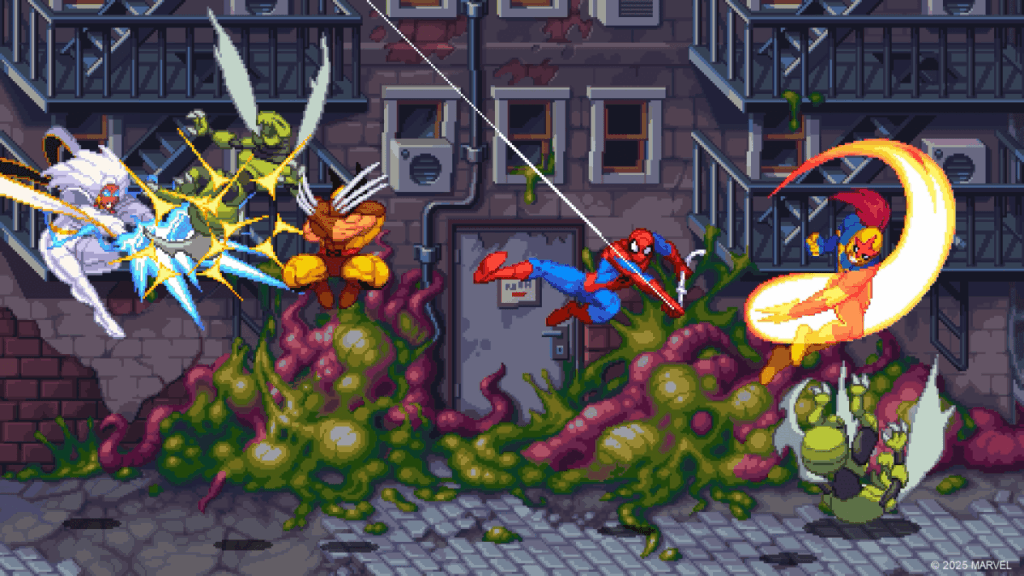
Source: DOTEMU / Tribute Games / Marvel Cosmic Invasion
We are having a beat ’em up renaissance in the video game world, and Tribute Games is leading the charge. Their latest game, Marvel Cosmic Invasion, aims to continue that trend, and based on our experience at Summer Game Fest Play Days, the studio has another hit on its hands.
Tribute Games quickly rose on our list of favorite studios after the release of Teenage Mutant Ninja Turtles: Shredder’s Revenge. They are shifting from one popular IP, the Ninja Turtles, to deliver us another game involving popular characters from Marvel Comics’ lore with Marvel Cosmic Invasion.
This game was already high on our list when it was first announced, so you can imagine we were excited to get hands-on with it at Play Days. Let’s dive into our thoughts about our experience.
Before we proceed, let’s briefly explore the game’s plot. In Marvel Cosmic Invasion, Annihilus launches an attack that spreads across the galaxy, and it’s up to you and whichever two heroes you select to travel across Earth and beyond to stop the Annihilation Wave.
If that sounds familiar, Marvel aficionados will easily point out that the game’s plot is based on the Annihilation comic book run.
Cosmic Swap Is An Instant Game-Changer In Marvel Cosmic Invasion
Source: DOTEMU / Tribute Games / Marvel Cosmic Invasion
Right off the bat, Marvel Cosmic Invasion is already on a different level with its inclusion of our favorite Marvel superheroes. Still, what truly sets this game apart from games like TMNT: Shredder’s Revenge is the new character swapping feature called “Cosmic Swap.”
Immediately, we came to appreciate it because it’s hard to choose from the list of heroes, which so far includes Storm, Wolverine, Spider-Man, Nova, She-Hulk, Rocket Raccoon, Captain America, Venom, and Phyla-Vell.
Thanks to Cosmic Swap, that decision is made easier because you get to choose two characters to run with to take out Annihulus.
Now to the game, Cosmic Invasion isn’t just a typical beat ’em up; it has its own flair to the genre with the Cosmic Swap, which is a tag team function that you would find in most modern-day fighting games.
For our run, we played as Captain America and Spider-Man, and it felt seamless as we switched between the characters during the two stages we experienced during the brief but still meaty demo.
Source: DOTEMU / Tribute Games / Marvel Cosmic Invasion
Also, unlike other beat ’em up games, there seems to be more weight behind the attacks, and we appreciated that you could perform combos by knocking your opponents in the air, allowing your secondary character or another player to finish off an enemy to add some style to the game’s combat.
Other Fun Elements In Marvel Cosmic Invasion
Source: DOTEMU / Tribute Games / Marvel Cosmic Invasion
Like Shredder’s Revenge, Cosmic Invasion is a beautifully designed 2D experience featuring gorgeous animation that brings these heroes from the comic book pages to life, while showing appreciation for a style considered dated by today’s video game graphics standards.
The soundtrack in the game also impresses, adding to the chaotic yet enjoyable gameplay. Boss bottles are also challenging, requiring players to either work together with other players or skillfully utilize their character’s special moves in conjunction with kicks and punches to take out bosses like Taskmaster, who require teamwork to break his defenses, opening him up for attacks.
Overall Thoughts
Source: DOTEMU / Tribute Games / Marvel Cosmic Invasion
Marvel Cosmic Invasion was one of the games we were already excited about before our preview. Getting hands-on with the game has only increased that anticipation.
Based on the sample size we experienced, Tribute Games and DOTEMU have another hit on their hands. With the addition of new characters, such as She-Hulk and Rocket Raccoon, this game could become one with high replayability over time.
Keep it locked on HHW Gaming for a full review of Marvel Cosmic Invasion ahead of the game’s release.
1. Marvel Cosmic Invasion
Source:Marvel Cosmic Invasion
She-Hulk and Rocket Raccoon announced as playable characters in Marvel Cosmic Invasion. marvel cosmic invasion
2. Marvel Cosmic Invasion
Source:Marvel Cosmic Invasion
She-Hulk and Rocket Raccoon announced as playable characters in Marvel Cosmic Invasion. marvel cosmic invasion
3. Marvel Cosmic Invasion
Source:Marvel Cosmic Invasion
Marvel Cosmic Invasion marvel cosmic invasion
4. Marvel Cosmic Invasion
Source:Marvel Cosmic Invasion
Marvel Cosmic Invasion marvel cosmic invasion
5. Marvel Cosmic Invasion
Source:Marvel Cosmic Invasion
Marvel Cosmic Invasion marvel cosmic invasion
6. Marvel Cosmic Invasion
Source:Marvel Cosmic Invasion
Marvel Cosmic Invasion marvel cosmic invasion
7. Marvel Cosmic Invasion
Source:Marvel Cosmic Invasion
Marvel Cosmic Invasion marvel cosmic invasion
8. Marvel Cosmic Invasion
Source:Marvel Cosmic Invasion
Marvel Cosmic Invasion marvel cosmic invasion
9. Marvel Cosmic Invasion
Source:Marvel Cosmic Invasion
Marvel Cosmic Invasion marvel cosmic invasion
10. Marvel Cosmic Invasion
Source:Marvel Cosmic Invasion
Marvel Cosmic Invasion marvel cosmic invasion
HipHopWired Featured Video
CLOSE
Artificial intelligence is a technology with profound implications — it will soon be smarter than we are! — including for the future of music. So far, though, the debate over the copyright issues involved in training AI algorithms follows a familiar pattern: Rightsholders want a licensing structure to generate royalties, while some technology companies maintain that they don’t need permission and others just proceed without it. To music executives of a certain age, it sounds a bit like the Napster battle, especially since the central issue is fair use. Technology companies seem to have the same plan: Move fast and break things, then try to change the law once consumers get accustomed to the new technology.
Could this time be different?
Trending on Billboard
Yes and no, at least to judge by the current state of affairs. In the European Union, which passed the first serious AI legislation, some lawsuits working their way through the courts now — perhaps most importantly GEMA’s case against Suno — will provide more clarity. The situation in the U.S., which seemed to depend on the result of major label lawsuits against Suno and Udio — in which the two sides are negotiating — has been complicated by President Trump’s firing of the Register of Copyrights. In the U.K., the government has been considering loosening copyright by calling for a consultation — but that effort has come under pressure from both music companies and creators.
Two weeks ago, at a party to honor the Billboard Global Power Players, Elton John and his manager and husband, David Furnish, won the first-ever Billboard Creators Champion Award for their work fighting the U.K. government’s proposed adjustments to copyright law. That initially involved an amendment to a data bill being debated in parliament that would have forced technology companies to be transparent about the content they used to train their algorithms. The bill repeatedly “ping-ponged” between the House of Commons and the House of Lords as the latter repeatedly voted for the amendment, under the leadership of Baroness Beeban Kidron. Last week, after more back-and-forth, the data bill passed without the amendment.
This bill doesn’t affect copyright, although the amendment would have, so it represents only a minor skirmish in what’s shaping up to be a serious fight. John and Furnish aren’t going away, and John’s consistent championing of upcoming artists gives them real moral authority. Other artists are with them, including Paul McCartney and the acts behind the “silent album.” There’s strength in numbers, and the days when companies like Napster could give Metallica a reputational black eye are long since over. Few artists and executives have devoted as much time to the issue as John and Furnish, but they aren’t alone. Besides artists, the entire music business is behind them.
They are also fighting a very different battle than Metallica was all those years ago. Back then, the Internet looked much cooler than major label music — more disruptive, in today’s terms — and Metallica got cast, unfairly, as trying to fight the next new thing. At this point, technology companies have grown into a new establishment, with far more political power than the media business ever had. Elton John doesn’t seem like he’s trying to stop the next new thing — he’s trying to make sure that new technology doesn’t get in the way of the next new artists. Metallica’s fight wasn’t actually all that different — people just didn’t understand it very well.
Technology companies are pushing some of the same ideas they always have, which now seem almost oddly old-fashioned. The idea is that governments need to relax copyright laws so they can “take the lead” or “get ahead” in “the AI arms race.” This sounds vital, and it is, except that the kind of AI that’s most important is general intelligence, which has very little to do with the kind that can make new songs in the style of, say, Led Zeppelin. That’s just a consumer product. Also, what exactly are governments racing toward? Since AI is expected to eliminate white-collar jobs and the tax revenue that flows from them, what exactly is the hurry?
The debate over the U.K. data bill was only just the beginning, and the way John and Furnish framed the issue could influence the debate as it develops. For the next few years, both sides will argue about how compensation will work. But without the kind of transparency that the amendment to the bill mandated, it would be very difficult for technology companies to identify and pay the right creators. Transparency is necessary but not sufficient — it won’t solve the problem, but there can’t be a solution without it. Any serious conversation about compensating artists for the use of their work in AI needs to start there, and thanks to creators, this one has. Let’s see where it goes from here.
VCG / TikTok / Donald Trump
US TikTok users, you still have time to make your dance videos after Donald Trump extended the deadline for a third time, allowing the platform to divest from its Chinese-owned parent company, ByteDance, or face a US ban.
Notorious liar, White House Press Secretary Karoline Leavitt, confirmed in a statement on Tuesday that Felon 47 will sign an executive order allowing for another 90-day extension, pushing the new deadline to mid-September.
Leavitt said the Trump administration will be “working to ensure this deal is closed so that the American people can continue to use TikTok with the assurance that their data is safe and secure.”
When Trump signed the first extension, it provided TikTok’s US service providers, which are subject to the Protecting Americans from Foreign Adversary Controlled Applications Act, with protection from the hundreds of billions in penalties they would face if they continued to operate the app online and in US app stores.
According to The Verge’s reporting, that legal cover wasn’t rock solid because Trump’s extensions are not codified into law, which was passed overwhelmingly by a bipartisan vote in Congress and subsequently upheld as constitutional by the Supreme Court.
There Was A Tentative Agreement In Place Before Trump’s Tariffs Killed It
The website previously reported that ByteDance and a coalition led by Oracle were close to a deal in April, but thanks to Trump’s abuse of tariffs, which sank the tentative agreement.
Even though the “trade war” between China and the US has cooled down, there is still no word on whether the old deal is back on the table or if a new agreement is being discussed.
Additionally, it wasn’t guaranteed that ByteDance would be willing to include TikTok’s algorithm, which powers its video recommendations.
Additionally, several lawmakers, including critics of the “divest or ban law,” are sounding the alarm over Trump’s repeated extensions, calling them “untenable and illegal.”
We remain curious to see how this drama unfolds, as it appears there is no deal in sight.
HipHopWired Featured Video
Source: NurPhoto / Getty / Trump Mobile
For their next grift, President Trump and his grifting family are launching wireless communication business and already have three cellphone service carries down to help scam people out of their money.
Monday, the family of snake oil salesmen, the Trump Organization, announced Trump Mobile, which will offer 5G phone service bundled with an unlimited plan and hilariously called the “47 Plan.” This plan will cost any sucker who signs up for it $47.45 per month.
Yes, that number is a play on Trump being the 47th and 45th President of the United States.
This latest grift joins the long list of grifts and ventures the president and his family are involved in, including “luxury” hotels, golf clubs, casinos, crypto, and real estate. We would be remiss if we didn’t mention Trump’s other business failures, such as Trump Steak, Trump Vodka, Trump Taj Mahal, Trump Shuttles, and Trump Mortgage, LLC.
Trump Mobile could very well make it onto that list.
Trump’s two numbskull sons, Donald Trump Jr. and Eric Trump Jr. made the announcement on what is the 10-year anniversary of their father coming down that gaudy-ass Trump Tower gold escalator in NYC to announce he was going to run for president, subsequently making our lives a living hell and giving racists the confidence they needed to express their bigotry loud and proudly.
Per Variety:
“Trump Mobile is going to change the game,” Donald Trump Jr. said in a statement. “We’re building on the movement to put America first, and we will deliver the highest levels of quality and service. Our company is based right here in the United States because we know it’s what our customers want and deserve.”
Trump Mobile Is Offering Customers A New Smartphone, The T1
Variety also reports potential suckers, oops we customers can make the switch to Trump Mobile’s T1 Mobile service using their current devices.
If you’re in the market for a new phone you can purchase Trump Mobile’s “T1 Phone” which honestly looks like a Android knockoff of the iPhone and is described as “a sleek, gold smartphone engineered for performance and proudly designed and built in the United States for customers who expect the best from their mobile carrier.”
Like many of Agent 47’s ventures, Rolling Stone points out that Trump Mobile is just another licensing deal with the fine print stating, “Trump Mobile, its products and services are not designed, developed, manufactured, distributed or sold by The Trump Organization or any of their respective affiliates or principals. T1 Mobile LLC uses the ‘Trump’ name and trademark pursuant to the terms of a limited license agreement which may be terminated or revoked according to its terms.”
Lol.
Of course, Trump Mobile is getting roasted on X, formerly Twitter. You can see those reactions in the gallery below.
2. Exactly
HipHopWired Featured Video
CLOSE
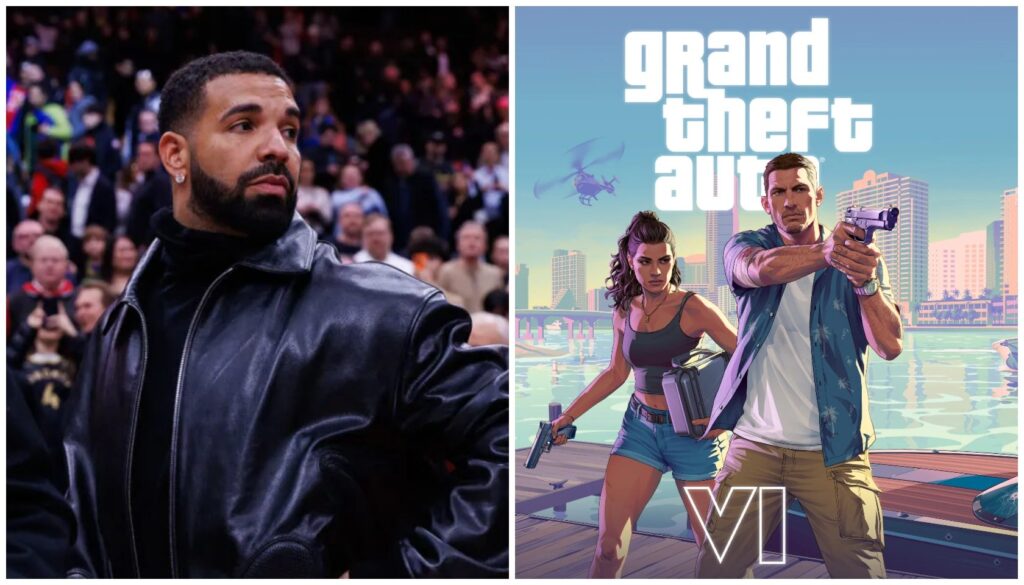
Source: Drake / GTA 6
Rockstar Games is notorious for not spilling any details on its video games, especially GTA 6. Still, record producer Jermaine Dupri spilled the beans about Drake’s alleged involvement with what is easily one of the most anticipated video games of all time.
While speaking with Rory and Mal, Jermaine Dupri claims that Rockstar Games reached out to him to work on GTA 6, and that the salty 6 God will also be involved with the game.
“They asked me to do Grand Theft Auto, and they were saying like Drake got his own radio station on Grand Theft Auto,” Dupri said.
Dupri took his claims to another level. He claims that not only will Drake have a radio station, but when the game finally arrives, “Drake can actually upload music that we probably have never even heard online on that video game.”
If true, it would be a significant development, as it would provide another means for Drake to release his unreleased big tunes to the masses through GTA 6.
Other Rumors Invovling GTA 6
With any news regarding GTA 6 not announced by Rockstar Games, take this with the tiniest grain of salt. Drake is not the first big-name artist to be associated with the game.
There were rumors that DJ Khaled was going to be getting a radio station, and gamers were not happy to hear that rumor. Dr. Dre was also involved with Grand Theft Auto V and Grand Theft Auto Online, getting story DLC and a station featuring his music.
Along with groundbreaking gameplay, it also plays on pop culture and gratuitous violence. The Grand Theft Auto game franchise is also renowned for its radio stations, which typically feature classic songs from various genres that align with the game’s setting.
Gamers have been reacting to the news of Drake allegedly providing music for GTA 6; you can see those reactions in the gallery below.
3. Exactly
HipHopWired Featured Video
CLOSE
Sony Music CEO/chairman Rob Stringer spoke to investors on Friday (June 13) about his vision for how generative AI can be integrated into his business, stating that the company is “going to do deals for new music AI products this year with those that want to construct the future with us the right way.”
To date, Stringer says the major music company has “actively engaged with more than 800 companies on ethical product creation, content protection and detection, enhancing metadata and audio tuning and translation amongst many other shared strategies.” He went on to say that he believes “AI will be a powerful tool in creating exciting new music that will be innovative and futuristic. There is no doubt about this,” but later added: “So far, there is too little collaboration, with the exception of a handful of more ethically minded players.”
Stringer’s statements about the emerging tech, which he made at Sony Group’s 2025 Business Segment Presentation, arrived just a week after news broke that Sony — and its competitors Universal Music Group and Warner Music Group — were engaged in talks with generative AI music companies Suno and Udio about creating a music license for their models. Suno and Udio are currently using copyrighted material, including music from the three majors, to train their models without a license. This spurred the trio to file blockbuster lawsuits against Suno and Udio in June 2024, in which they alleged copyright infringement on an “almost unimaginable scale.”
Trending on Billboard
In his remarks on Friday, Stringer likened the current AI revolution to “the shift from ownership to streaming” just over a decade ago. “We will share all revenues with our artists and songwriters, whether from training or related to outputs, so they are appropriately compensated from day one of this new frontier,” he said.
“I do think that what AI is based on, which is learning models and training models based on existing content, means that those people who have paved the way for this technology do have to be fairly treated in terms of how they get recompense for that usage in the training model,” Stringer continued. “We have been pretty clear on this since day one that there is absolutely no backwards view as to what this technology will do. There will be artists, probably there will be young people sitting in bedrooms today, who will end up making the music of tomorrow through AI. But if they use existing content to blend something into something magical, then those original creators have to be fairly compensated. And I think that’s where we are at the moment.”
There are challenges ahead to figure out proper remuneration for musical artists from generative AI, as Billboard recently described in an analysis of the Suno and Udio licensing talks. While the AI license could borrow the streaming licensing model by having AI firms obtain blanket licenses for a company’s full musical catalog in exchange for payment, it remains to be seen how the payments would be divided up from there. On streaming services, it’s simple to determine how often any given song is consumed and to route money to songs based on their popularity. But for generative AI, the calculation would be far more complicated. To date, Suno and Udio do not offer guidance as to which tracks were used in the making of an output, and experts are divided on whether or not the technology needed to figure that out is ready yet.
Also on Friday, Stringer expressed a desire to come to agreements with AI companies in a free market, stating: “With deals being carried out, it will be clear to governments that a functioning marketplace does exist, so there is no need for them to listen to the lobbying from the tech companies so heavily.”
Today, many AI companies don’t believe they need to license music or other copyrights at all, citing a “fair use” defense. But in his statements, Stringer was optimistic that this would change, citing the recent position of the U.S. Copyright Office, which said that “making commercial use of vast troves of copyrighted works, especially where this is accomplished through illegal access, goes beyond established fair use boundaries.” One day after publishing this position about the value of copyrights in the AI age, however, the Register of Copyrights, Shira Perlmutter, was fired by President Donald Trump. (Perlmutter sued soon after, calling Trump’s move “unlawful and ineffective.”)
“We are between us and the AI tech platforms trying to find common ground,” Stringer continued. “And that common ground is not going to take a minute. It’s going to take a moment, and then it’s going to take the trial and error process, and we are in that era right now.”
All products and services featured are independently chosen by editors. However, Billboard may receive a commission on orders placed through its retail links, and the retailer may receive certain auditable data for accounting purposes.
Bose is celebrating music this summer with the release of two new products.
Get ready to upgrade your music and podcast listening experience. The tech brand unveiled their Bose QuietComfort Ultra Earbuds (2nd Gen) and Bose SoundLink Plus Portable Speaker available to pre-order now on Bose’s website. The earbuds retail for $299.00, while the speaker retails for $269.00. Bose also unveiled a third product, the SoundLink Micro Bluetooth Speaker (2nd Gen), a mini speaker retailing for $129.00 that won’t be available just yet.
Bose QuietComfort Ultra Earbuds (2nd Gen) in Deep Plum
Compact earbuds in a deep plum hue that filter out noise that comes in three colorways.
The all-new earbuds are compact and sleek, coming in three unique colorways including Black, White Smoke and Deep Plum. A riff on Bose’s best-selling OG QuietComfort Ultra Earbuds model, these buds include a range of upgraded details that enhance your listening experience from improved AI algorithms that enhance ActiveSense to better filter out sudden noise spikes for a smoother listening experience, to updated overall voice pickup and call quality. Additionally, the buds boast a whopping six hours of battery life so you’ll never be without your music.
Explore
Explore
See latest videos, charts and news
See latest videos, charts and news
Bose SoundLink Plus Portable Speaker
A rectangular portable speaker in black that comes in three colorways.
Bose’s SoundLink Plus Portable Speaker is a new model for the brand. The mid-range portable speaker bridges the sound gap between the brand’s SoundLink Flex and the Max. The SoundLink Plus comes in three colorways, Black, Blue Dusk and a summery Citrus Yellow, and features one subwoofer, a tweeter and four passive radiators for a booming base that defies the speaker’s size.
Trending on Billboard
The miniature construction is perfect for on the go listening and can be easily packed into a backpack, tote or purse. The SoundLink is portable-friendly thanks to its ultra-durable construction. The speaker is able to withstand anything you throw at it. It even floats in water. Additional features include a 20-hour battery life and a USB-C port capable of charging other devices while bumping your favorite songs.
We know waiting to pre-order can be a hassle, but why not curb your tech appetite with LISA x Bose’s latest collab? These earbuds currently retail for $399.00 and feature a glossy black finish and a chrome star, a signature of the K-Pop star’s since the release of her 2025 album Alter Ego.
Bose x LISA Ultra Open Earbuds
Bose x LISA collaborative earbuds with star graphics on the buds.
These buds are crafted to sit over the ears in a cuff-like fit, leaving you the ability to tune into the world around you while bumping to “New Woman” in the background. These buds have brag-worthy sound quality thanks to Bose’s OpenAudio technology that delivers rich, nuanced sound to your ear while minimizing sound leakage. The carrying case is also equipped with LISA’s star motif, a specific nod to her “Rockstar” era.
Bose SoundLink Micro Portable Bluetooth Speaker
A mini portable speaker in three different colorways.
If you want to shop the original SoundLink Micro Bluetooth Speaker while you wait for the second-gen, you can also shop it at Target for $99.99. The old model comes in three colorways, although our favorite is the summer-y Blue hue. Beyond its powerful sound quality, this tiny speaker is perfect for packing away for tunes anywhere your summer plans may take you.

 State Champ Radio
State Champ Radio 